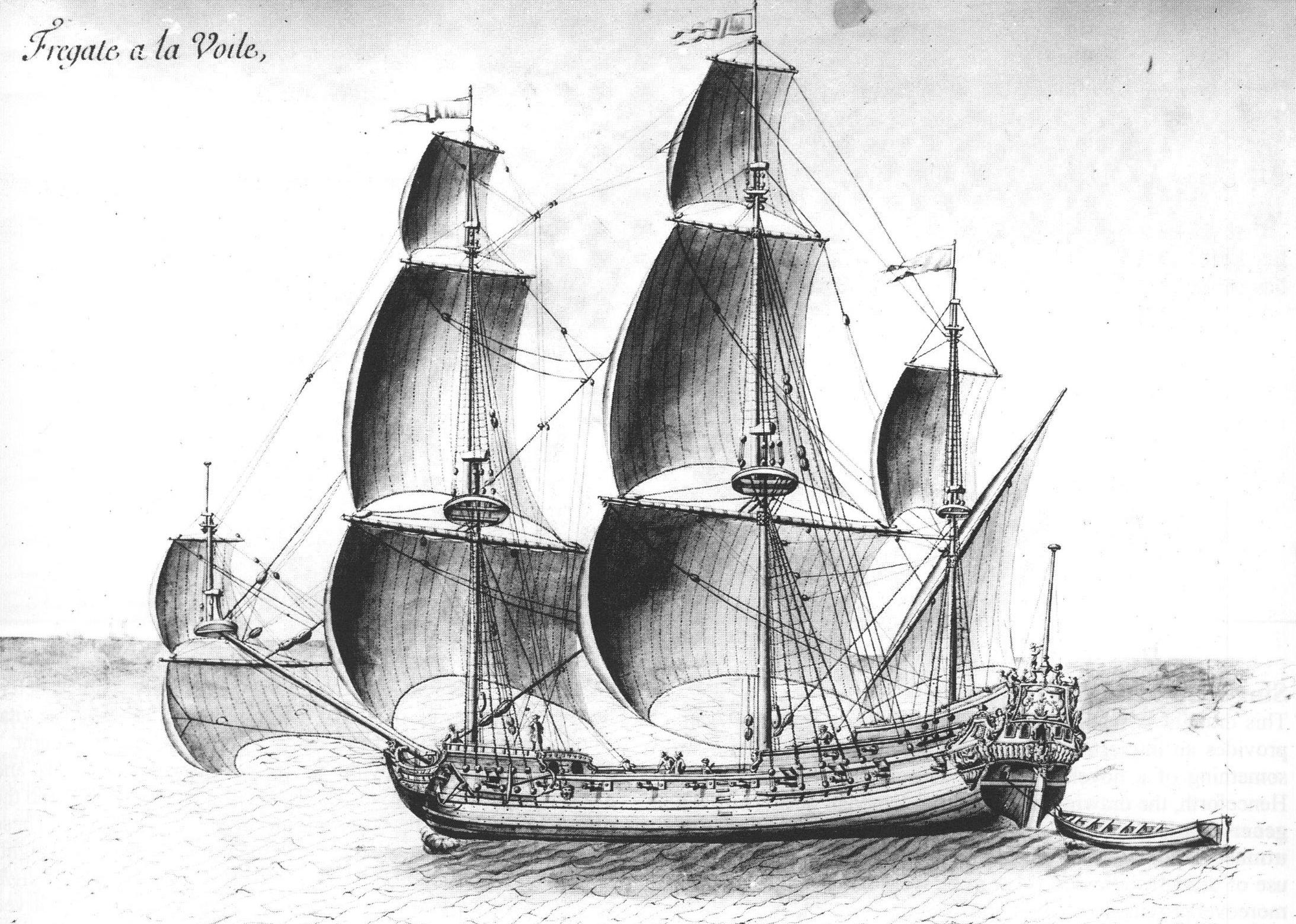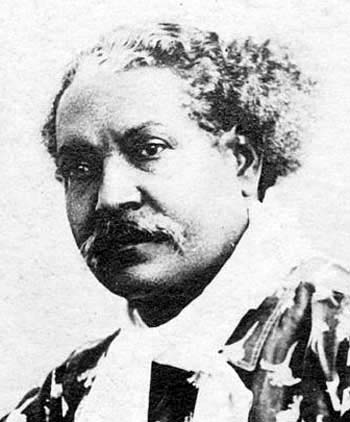|
Batsch Affair
The Batsch affair was an 1872 diplomatic incident between Haiti and Germany and an example of gunboat diplomacy. During the Franco-Prussian war, the Haitians openly showed their sympathy for France, which displeased Germany. After Germany prevailed in the war, Captain , of the frigate , arrived at Port-au-Prince on June 11, 1872, under the pretext of demanding the payment of £3,000 on behalf of two subjects of the German Empire. Without warning Batsch took possession of the two Haitian men-of-war, which, not expecting such an aggression, were lying at anchor in the harbor and unable to make the slightest resistance. Indignant at this attack, the Haitian people—in the words of poet Oswald Durand—"threw the money to the Germans as one would cast a bone to a dog." Batsch took the amount, gave back the two men-of-war, and left Port-au-Prince. But Germany's actions caused long-lived resentment. See also *Lüders affair The Lüders affair was a legal and diplomatic embarrassment t ... [...More Info...] [...Related Items...] OR: [Wikipedia] [Google] [Baidu] |
Haiti
Haiti (; ht, Ayiti ; French: ), officially the Republic of Haiti (); ) and formerly known as Hayti, is a country located on the island of Hispaniola in the Greater Antilles archipelago of the Caribbean Sea, east of Cuba and Jamaica, and south of The Bahamas and the Turks and Caicos Islands. It occupies the western three-eighths of the island which it shares with the Dominican Republic. To its south-west lies the small Navassa Island, which is claimed by Haiti but is disputed as a United States territory under federal administration."Haiti" ''Encyclopædia Britannica''. Haiti is in size, the third largest country in the Caribbean by area, and has an estimated population of 11.4 million, making it the most populous country in the Caribb ... [...More Info...] [...Related Items...] OR: [Wikipedia] [Google] [Baidu] |
Germany
Germany,, officially the Federal Republic of Germany, is a country in Central Europe. It is the second most populous country in Europe after Russia, and the most populous member state of the European Union. Germany is situated between the Baltic and North seas to the north, and the Alps to the south; it covers an area of , with a population of almost 84 million within its 16 constituent states. Germany borders Denmark to the north, Poland and the Czech Republic to the east, Austria and Switzerland to the south, and France, Luxembourg, Belgium, and the Netherlands to the west. The nation's capital and most populous city is Berlin and its financial centre is Frankfurt; the largest urban area is the Ruhr. Various Germanic tribes have inhabited the northern parts of modern Germany since classical antiquity. A region named Germania was documented before AD 100. In 962, the Kingdom of Germany formed the bulk of the Holy Roman Empire. During the 16th ce ... [...More Info...] [...Related Items...] OR: [Wikipedia] [Google] [Baidu] |
Gunboat Diplomacy
In international politics, the term gunboat diplomacy refers to the pursuit of foreign policy objectives with the aid of conspicuous displays of naval power, implying or constituting a direct threat of warfare should terms not be agreeable to the superior force. Etymology The term "gunboat diplomacy" comes from the nineteenth-century period of imperialism, when Western powersfrom Europe and the United Stateswould intimidate other, less powerful entities into granting concessions through a demonstration of Western superior military capabilities, usually represented by their naval assets. A coastal country negotiating with a Western power would notice that a warship or fleet of ships had appeared off its coast. The mere sight of such power almost always had a considerable effect, and it was rarely necessary for such boats to use other measures, such as demonstrations of firepower. A notable example of gunboat diplomacy, the Don Pacifico affair in 1850, saw the British Foreig ... [...More Info...] [...Related Items...] OR: [Wikipedia] [Google] [Baidu] |
Frigate
A frigate () is a type of warship. In different eras, the roles and capabilities of ships classified as frigates have varied somewhat. The name frigate in the 17th to early 18th centuries was given to any full-rigged ship built for speed and maneuverability, intended to be used in scouting, escort and patrol roles. The term was applied loosely to ships varying greatly in design. In the second quarter of the 18th century, the 'true frigate' was developed in France. This type of vessel was characterised by possessing only one armed deck, with an unarmed deck below it used for berthing the crew. Late in the 19th century (British and French prototypes were constructed in 1858), armoured frigates were developed as powerful ironclad warships, the term frigate was used because of their single gun deck. Later developments in ironclad ships rendered the frigate designation obsolete and the term fell out of favour. During the Second World War the name 'frigate' was reintroduced to des ... [...More Info...] [...Related Items...] OR: [Wikipedia] [Google] [Baidu] |
Port-au-Prince
Port-au-Prince ( , ; ht, Pòtoprens ) is the capital and most populous city of Haiti. The city's population was estimated at 987,311 in 2015 with the metropolitan area estimated at a population of 2,618,894. The metropolitan area is defined by the IHSI as including the communes of Port-au-Prince, Delmas, Cite Soleil, Tabarre, Carrefour and Pétion-Ville. The city of Port-au-Prince is on the Gulf of Gonâve: the bay on which the city lies, which acts as a natural harbor, has sustained economic activity since the civilizations of the Taíno. It was first incorporated under French colonial rule in 1749. The city's layout is similar to that of an amphitheater; commercial districts are near the water, while residential neighborhoods are located on the hills above. Its population is difficult to ascertain due to the rapid growth of slums in the hillsides above the city; however, recent estimates place the metropolitan area's population at around 3.7 million, nearly half of the ... [...More Info...] [...Related Items...] OR: [Wikipedia] [Google] [Baidu] |
Men-of-war
The man-of-war (also man-o'-war, or simply man) was a Royal Navy expression for a powerful warship or frigate from the 16th to the 19th century. Although the term never acquired a specific meaning, it was usually reserved for a ship armed with cannon and propelled primarily by sails, as opposed to a galley which is propelled primarily by oars. Description The man-of-war was developed in Portugal in the early 15th century from earlier roundships with the addition of a second mast to form the carrack. The 16th century saw the carrack evolve into the galleon and then the ship of the line. The evolution of the term has been given thus: The man-of-war design developed by John Hawkins (naval commander), Sir John Hawkins had three masts, each with three to four sails. The ship could be up to 60 metres long and could have up to 124 guns: four at the bow, eight at the stern, and 56 in each broadside. All these cannons required three gun decks to hold them, one more than any earlier ... [...More Info...] [...Related Items...] OR: [Wikipedia] [Google] [Baidu] |
Oswald Durand
Oswald Durand (September 17, 1840 - April 22, 1906) was a Haitian poet and politician, said to be "to Haiti what William Shakespeare, Shakespeare is to England, and Dante Alighieri, Dante to Italy."P. Schutt-Ainé, ''Haiti: A Basic Reference Book'', 95 He was also a Haitian writer and poet of French and Creole expression, considered as the national poet of Haiti. Besides he was also judged as a Romantic poet and the most prolific one in the nineteen centuries. These 20th-century successors such as René Depestre, and Jacques Roumain congratulated Oswald Durand for his authentic expressions and honored him as a forerunner of Haitian indigenism. He was born in the northern part of Haiti, in the city of Saint-Louis-du-Nord, Saint-Louis du Nord. In 1842, both his parents died in the earthquake that devastated the city of Cape Haitian. Oswald Durand, and his sister, were welcomed in their maternal grandmother who raised them. He spent most of his childhood outside the city where he was ... [...More Info...] [...Related Items...] OR: [Wikipedia] [Google] [Baidu] |
Lüders Affair
The Lüders affair was a legal and diplomatic embarrassment to the Haitian government in 1897. On September 21, 1897, Haitian police were looking for one Dorléus Présumé, who was accused of theft. They found him washing a coach in front of the "Écuries Centrales" (Central Stables) of Port-au-Prince, whose proprietor was Emile Lüders. Présumé resisted arrest, and Lüders, who had heard the noise, came to his defence. On September 21, 1897, both Présumé and Lüders were sentenced by the Police Tribunal to one month's imprisonment for assault and battery. They appealed to the Correctional Tribunal, but this time they were also charged with using force to resist arrest. The original sentence was annulled and on October 14 they were sentenced to one year's imprisonment. Lüders had previously been sentenced to six days imprisonment in 1894 for Battery (crime), battery on a soldier. Witnesses against Lüders included United Kingdom, British, France, French, and Germany, German ... [...More Info...] [...Related Items...] OR: [Wikipedia] [Google] [Baidu] |
Diplomatic Incidents
Diplomatics (in American English, and in most anglophone countries), or diplomatic (in British English), is a scholarly discipline centred on the critical analysis of documents: especially, historical documents. It focuses on the conventions, protocols and formulae that have been used by document creators, and uses these to increase understanding of the processes of document creation, of information transmission, and of the relationships between the facts which the documents purport to record and reality. The discipline originally evolved as a tool for studying and determining the authenticity of the official charters and diplomas issued by royal and papal chanceries. It was subsequently appreciated that many of the same underlying principles could be applied to other types of official document and legal instrument, to non-official documents such as private letters, and, most recently, to the metadata of electronic records. Diplomatics is one of the auxiliary sciences of hi ... [...More Info...] [...Related Items...] OR: [Wikipedia] [Google] [Baidu] |
Germany–Haiti Relations
German–Haitian relations date back to the time before the country's independence. They were characterized by trade in the 19th century. In the 20th century, they lost importance due to political developments in both Germany and Haiti. Diplomatic relations still exist, and both countries have exchanged ambassadors. History The earliest known German settlement in the then French colony of Saint-Domingue was in the village of Bombardopolis, located south of the capital of the arrondissement of Môle-Saint-Nicholas in the département of Nord-Ouest. About a thousand German settlers came to Bombardopolis in the 18th century at the invitation of France to farm the land. However, since the region in the northwest is one of the most infertile parts of Haiti, the settlers left the colony after a short time for Guyana and Louisiana. Among the French troops of General Charles Leclerc, who were to suppress the uprisings in the colony in 1802 and 1803 and were over 30,000 strong, were ... [...More Info...] [...Related Items...] OR: [Wikipedia] [Google] [Baidu] |
.jpg)


.jpg)


